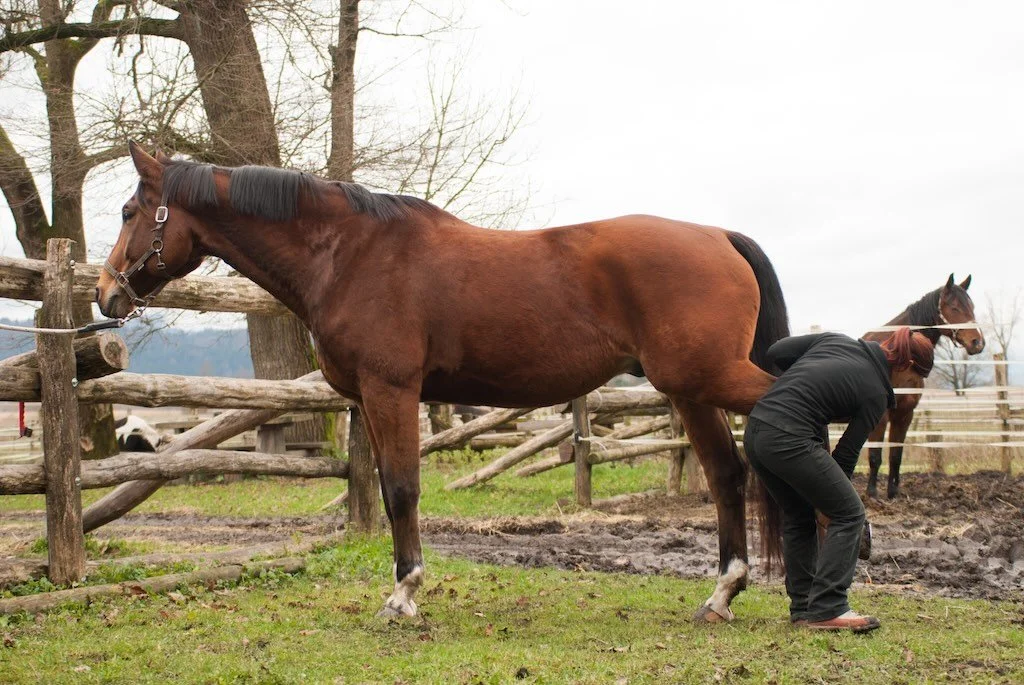Why does my horse have a hard time picking up hind legs?
A horse that has a hard time picking up or holding up his legs can often be labelled as being naughty, but there's actually a strong chance that he is acting this way due to physical discomfort.
Inability to retract and relax the hind leg might stem from a tight hip flexor.
Picking up all four legs is one of the most basic skills every horse needs and usually learns quite early in life. If the horse has not had any traumatic experiences with it, picking up a horse's legs should be pretty straightforward. However, some horses seem to have a harder time, especially when it comes to the hind legs. Refusing to pick up a hind leg or fussing about when doing it isn't only frustrating, it can be downright dangerous. While refusing to pick up or hold up legs is often seen as a behavioural issue, it often stems from a pain problem. Here are some things to pay attention to when picking up the hind legs.
Some horses will pick up the leg and then immediately snatch it upwards towards their belly before relaxing it downwards. In some cases, this can be pretty extreme, to the point where the leg starts to shake and takes a long time before the horse is able to relax it. While it is difficult to make any strong claims about what can be the cause of the horse snatching the leg up, it’s very possible it has something to do with the nervous system. Sciatica (the entrapment of the sciatic nerve) seems like a very likely candidate for this kind of a problem. If you are experiencing this problem with your horse, consult a veterinarian and do a full lameness check-up. If nothing shows up, have the horse evaluated by a skilled bodyworker. The symptoms of entrapped nerves can result from dysfunction in the pelvis and soft tissue tightness.
Another problem that is quite common with picking up the hind legs is the inability to relax the leg backwards in retraction. If your horse has a hard time releasing the hind leg behind him, this could indicate tightness in his hip flexors – the psoas muscles. If this is the case, try a simple psoas release technique and try again. Repeating this technique every day for a few weeks might help alleviate the problem. If it persists, get a professional out to see your horse.
With some horses, the issue won't be to pick up the legs but to hold them up for longer periods of time. After a while the horse might try to snatch the leg back or just stomp it down to the ground. Again, this can potentially be dangerous, so it should be investigated sooner rather than later. Often, this will happen because the contralateral leg is having a hard time taking more than its share of bodyweight. Pay attention to how the horse picks up and holds up each leg. While one might be more difficult to hold up for longer periods, the other might have a problem stretching out behind or lifting up at a certain angle. This should give you some clues about where to start looking for problems. While there are some horses out there who won't pick up or hold up their legs because they have either never been taught properly, or have had some bad experiences, a lot of them have physical issues. Always keep this in mind, especially when a horse that was fine with picking up his hind legs, suddenly becomes very difficult.

